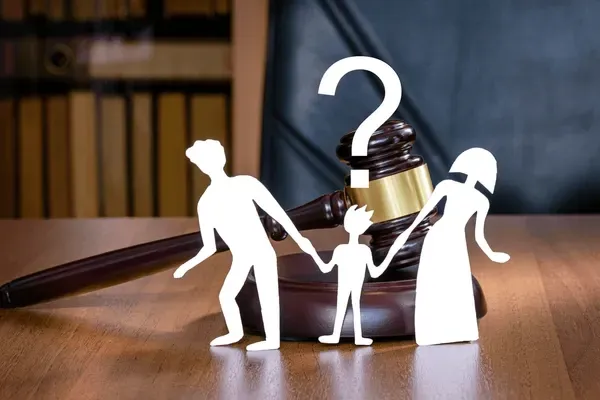How to Respond If Your Spouse Starts to Spy on You
Most of the time, we never see it coming. How could a relationship that once made us feel so good turn so sour? Whether you and your partner are engaging in shouting matches, or worse, fostering a steely silence — you could feel that your relationship is crumbling. Obviously, this is never a good feeling — and you’ll definitely want the best divorce lawyer in Wilmington, NC on your side in case people become petty.
One of the most hurtful things that can happen as a divorce is approaching is to have your spouse start spying on you. So let’s talk about how you’ll be able to tell if they’re spying, as well as which methods they might be employing. While some methods of spying are, in fact, legal, some are definitely not. We are able to advise you on which steps you need to take to ensure your safety
Reasons Your Partner May Spy on You
Simply listing the reasons why a spouse might spy on you is in no way an excuse or an endorsement. If your partner is spying on you, you’re probably feeling pretty hurt. After all, a partner is most likely to spy on you if they don’t trust you anymore. More specifically, they may suspect that you’re cheating on them.
They’re Paranoid or Controlling
Spying is often caused by a spouse’s paranoia. If you’ve cheated in previous relationships, or even in your current one, they may believe that you’d do it again. If you are, in fact, cheating, you could be leaving all sorts of breadcrumbs. Think of the suspicious calls your spouse may have overheard, even when you thought you were alone, or messages they may have glimpsed at. Not to mention, if they have access to your bank accounts, any odd expenses.
Similarly, if they’re investing in you financially, helping you go to college, or helping your business, they’d want to ensure that you’re using their investment wisely. Like we have already mentioned, most spouses are just insecure and need to reassure themselves of your fidelity and honesty. This is still not great, and the situation may actually call for couples therapy, at the very least. However, it’s also good to have a great divorce lawyer in Wilmington, NC on speed dial as well.
A much more dangerous alternative is if your partner is controlling, or they’ve been known to get violent. In this case, you’ll need to be extremely careful and get to a safe house as soon as possible. A relationship in which one partner needs to know every detail of the other’s life is sure to become toxic soon, if it hasn’t already.
In fact, your partner has probably approached you with their suspicions. If they’re fairly confident that you’re lying to them, you may get served with divorce papers. In that case, you should look into finding a good divorce lawyer in Wilmington, NC. Fortunately, here at the Law Office of Erin E. Russell, we’re ready and able to advise you every step of the way.
They Might Be Trying to Protect You
Alternatively, you may have had a history of drug and alcohol abuse. So your partner could simply be trying to make sure that you haven’t slipped. Addicts often tend to associate with dangerous people and make ill-advised financial decisions. If you haven’t slipped off the wagon, and you suspect that your spouse thinks that you have — it might be best to simply talk to them.
Losing your partner’s trust without having done anything is incredibly hurtful. However, if you’ve had previous substance abuse problems, your partner may be trying to protect you. On the other hand, if they’re considering divorce, they may also be fishing for any bad influences or even criminal acts that could make it easier for them in court.
Legal Advantages During a Divorce or a Custody Battle
Whether or not you’ve done something to “provoke” your spouse’s actions, you may be wondering how their findings will affect divorce proceedings in North Carolina. Fortunately, a divorce lawyer in Wilmington, NC is the perfect person to answer that question.
Essentially, in Wilmington, the court decides which spouse gets alimony and how much they ought to receive. Different factors are taken into consideration, such as each person’s average earnings and even marital misconduct. Of course, marital misconduct can mean various things, depending on the state.
In North Carolina, it can be adultery or a history of abuse. Both of these things can influence the court’s decision on how much alimony the dependent spouse is entitled to. They also influence the amount that’s added for potential child support. Now, if both partners cheated, the judge might even deny alimony — or they may still appoint it, depending on the circumstances. And if the spouses forgave each other for their indiscretions, the court may disregard them entirely.
Affairs don’t affect how the court decides to split a couple’s property among them. However, if one partner put significant funds into their affair, the court may also consider the affair when dividing property. After all, the property might now include any expensive gifts or apartments the cheating spouse purchased for their lover.
In fact, if a person uncovered an affair while spying on their partner, they could also sue their spouse’s lover. In North Carolina, they can sue for the loss of affection in a marriage, mental anguish, humiliation, loss of financial support (after the couple splits), and health damages. If your spouse is experiencing physical consequences of stress because of your affair, they might sue their ex’s lover for the cost of the medical bills as well.
How Can You Protect Yourself If Your Partner Is Spying on You?
In today’s digital age, there are so many ways your partner could be keeping their eye on you. Other than physically following you (or hiring someone to follow you) or bugging you, they could also be watching you over Wi-Fi cameras, and checking your texts, emails, and social media accounts. If you no longer feel safe around your spouse and suspect that they may be spying on you, there are certain steps you can take to protect yourself.
As a top divorce lawyer in Wilmington, NC, Erin E. Russell will be able to advise you if you come in with any questions. However, there are some tips that are universally applicable. For example, it’s always good to be vigilant, but especially so if you believe that you’re being followed. Take note of everything around you, maybe even write down which cars you’re seeing. You can also write down license plates and check for discrepancies.
Implement some safety checks while you’re driving and always switch up your routine. If you’re seeing the same person or car slow down or speed up when you do, you may be in trouble. But nowadays, you should be much more careful around your electronic devices.
Computer and Phone Spying
Like we have mentioned, you need to understand how you can protect your digital life. If you suspect that your spouse has your email and social media passwords, change them. Make them complicated, use random numbers and letters. Most importantly, avoid obvious passwords your spouse could guess. Also, secure your personal computer and smartphone, and make sure that you’re not leaving your computer still logged into your accounts.
Once you’ve eliminated all of the easy ways for your spouse to keep track of you, they may use more complicated ones. You’ll want to keep track of the software on your computer and any new apps on your phone. This goes without saying, but don’t open strange emails that may seem like spam. You may accidentally download spyware. Keystroke logging programs, for example, will allow your spouse to see every letter you type. That may allow them access into every one of your accounts. And they’ll be able to see potentially incriminating correspondence.
Do You Need a Divorce Lawyer in Wilmington, NC?
If you’re already certain that your spouse is spying on you, you might be in need of the services of a divorce lawyer in Wilmington, NC. Fortunately, we can help. But before it gets to that, there are some other responses you could try if you’re not ready to let go of your marriage.
If your spouse is unjustifiably insecure, it may be good to just explain what’s been going on. Perhaps try to talk about the source of their insecurity. Or simply allow them access to your accounts. That way, they’ll be able to see for themselves that they don’t have a reason to worry. The same response is appropriate if your spouse is trying to make sure you’re maintaining your sobriety. However, couples counseling might be a good idea as well.
Finally, if your spouse is controlling or abusive, or simply looking for an advantage during the divorce proceedings and they won’t be reasoned with, your only option is to protect yourself. You could keep protecting yourself against spyware and switch up your routine to discourage following. Basically, you’d be trying to outlast your spouse and hope that they give up. However, if your spouse is persistent, it may be time to terminate the marriage.
This is an incredibly difficult decision to make, but it might be better in the long run. If you decide that your relationship isn’t worth holding on to, you’ll need the services of the best divorce lawyer in Wilmington, NC. Fortunately, you’ll find one in the Law Office of Erin E. Russell, where we’ll try to make your transition as easy as possible. And if you decide that your spouse has crossed the line, you could report them to the police and file a restraining order.















